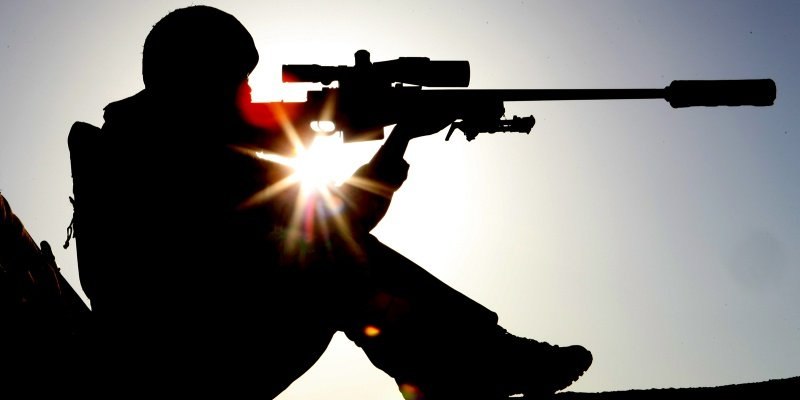This article originally appeared in the Telegraph
A majority of the British public support intervention in Syria with air power, special forces and advisors. But voters are still waiting for 'straight talk' on military action from both the Government and Opposition.
Western powers are again playing catch-up with Russian gambits, this time in Syria, where Vladimir Putin has seized the diplomatic initiative with a military fait accompli.
As in Ukraine, the Russian leader's tactical edge probably derives less from his political cunning abroad and more from a lack of democratic constraints at home. While American and European governments are learning to navigate new forms of public, political and legal opposition to the use of force, Putin faces no similar, domestic obstacles. He can countenance military escalation for political gain in ways they cannot.
In the process, Syria’s stalemate has been merely reinforced, at least for now. There are only so many endgames for a civil war: A) one side wins outright; B) multiple sides are exhausted or induced into sharing power; C) territory is partitioned, or a mixture thereof.
Option A is negated by unending foreign assistance to rebel forces and the embattled government of Bashar al-Assad, now bolstered by direct Russian air support. Options B and C are currently blocked by the lack of either Syrian or international agreement over the postwar status of his regime.
Thus goes the baffling context in which British voters are being readied for another debate on going to war in the Middle East, this time against Syrian targets of the so-called Islamic State, or Isil. Following a long run of unfulfilled military pledges, the public need a frank and unspun debate. There is a danger that neither side of the Dispatch Box will deliver.
Jeremy Corbyn has long argued that Syria will only be pacified by a political settlement and not by the use of force, least of all air strikes, which he says can only make matters worse. Now as Opposition Leader, his impassioned calls for peace hold natural appeal for significant parts of a war-weary public.
But they also conflate the two greatest hurdles to progress, namely rival outside interests together with the survival of Isil, and allow a vague impression that one can be surmounted as an alternative to confronting the other.
Isil will not relinquish, either to a united, diplomatic front or even after every last supply line has been choked. So unless the world is willing to leave it intact with quasi sovereign status, then warfare will eventually be required, including counterinsurgency operations on the ground led by international, pan-Arab or domestic Syrian forces. Absent large troop deployments, Britain would still have much to offer, not only in air power and special forces but across a modern arsenal of integrated action of which it is a pioneer: cyber, intelligence, financial, civil affairs, psychological and information operations.
But Corbyn is right to emphasise that jihadist movements in Syria are bred and fed by the wider war, and that there is no tackling Isil without its end. The UK Government should duly avoid another bout of military overselling. Even beyond the immediate roadblock of Assad’s future, the diplomatic path must still traverse a geopolitical playground of foreign agendas: Russia wants a safe naval port and a check on US hegemony; Iran and Hezbollah want a reliable, Syrian ally while Saudi Arabia and Israel want the Shia axis undermined; Turkey seeks a Sunni bulwark south of the border and guarantees against Kurdish irredentism.
Hence, if UK ministers want sustainable, public support for an extended, Syrian air campaign in the meantime, they might aim for an open disclosure about its narrowed potential to contain and harass, rather than defeat.
This could even pass muster. In-depth polling for the YouGov Centre at Cambridge University, conducted just before Russia's latest intervention and now published here, shows firm support from British voters for upping the military ante. Nearly two thirds expressed support for UK fighter jets being used to strike Isil targets in Syria, with stronger support still for doing so with drones. There is little appetite for deploying regular troops but roughly half of respondents backed the use of UK special forces to fight Islamist forces on the ground in Syria and almost 60 per cent supported sending UK military personnel to advise Western-backed rebels there.
Not many favour taking on the fight against Assad (see results) but a plurality were willing to support cooperating with his regime against Isil and over half supported working with Russia in the same capacity. These trends are further reflected in substantial support for using air power and special forces to similar ends in both Iraq (see results) and Libya (see results). Subsequent polling immediately following Russia’s new offensive suggests these trends are stable.
In other words, Corbyn is no vanguard for a new nation of doves. Yet hawks should also beware. It hardly takes a pollster to see the public impact of recent wars, including heightened fears of mission creep, more reverence for legality and less trust in the call to arms.
US intelligence estimates have warned that driving Isil out of its strongholds could take at least 10 years. The British stomach for military action has only just survived a decade of mismatching public expectations with military reality. It could barely withstand another.









